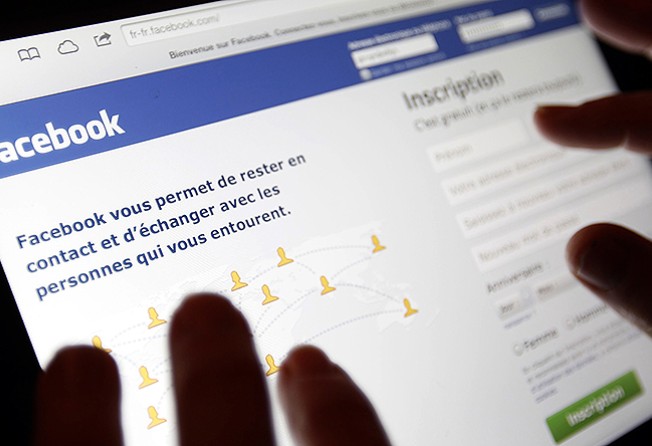Facebook increasingly shaping our view of the world
Amy Wu worries about the effects on society as Facebook moves from a place of social interaction to ourmain source of news and knowledge

A friend stopped me the other day with a simple question as I snapped a picture of my lunch (a bagel) and posted it on Facebook. "It looks like a face," she said. True. "So why are you taking a picture of it?" Well, it was a good way of documenting my diet (not convincing); I had the urge to show off the bagel (more convincing); and, I felt this itch to do something with my fingers, like click and slide (disturbing).
That same morning I had woken up with iPod on my left and iPhone on my right, and received most of the news by scrolling through Facebook's news feed.
I was drawn to my personalised news feed, with the exception of the latest search for Malaysia Airlines flight 370, much more than to headlines on global warming and unemployment. There were the "baby" headlines, "Day 5, Kevin James. An athlete?", the photo album of a "friend" (whose last name escapes me) on an African safari, and the emoticon "feeling" forecasts, "Jane is feeling happy".
Sigh. It's no surprise that social media, notably Facebook, is quickly becoming the core of our social lives, thanks to the availability and affordability of slick smartphones. But increasingly - and disturbingly - there is a feeling that Facebook is aggressively and successfully moving from our social space into the knowledge space.
Facebook's latest string of acquisitions is a warning sign about to where we are heading. In February, the company launched The Paper, a slick app that is essentially a newspaper with headlines and stories from branded news sources including The New York Times, Reuters, the BBC and CNN.
Later that month, the Zuckerberg empire announced it was acquiring WhatsApp, the messaging company, for US$19 billion. And the shopping spree continued into March when Facebook snapped up Oculus VR, the virtual reality headset company, for US$2 billion.
As we await their next purchase, it's clear that Facebook stands to become the new Time Warner of our information future. Think movies, music and more reality TV.
Facebook loyalists - an estimated three million in Hong Kong, or close to half the population, ask: what's the big deal?
For many millennials, Facebook is the key gateway to news and the world. That, along with headlines and scraps of information via Twitter, Weibo or WhatsApp texts from friends, constitutes their daily information diet. But why does this feel like a cheap buffet as opposed to a good, fulfilling meal?
It's little surprise that, during my recent current affairs discussion with a group of college students, I found they didn't know who the US secretary of state was, much less the president of China. But they knew what their friends were eating for lunch.
The potential for Facebook the monopoly media giant to threaten our knowledge base is real. Ultimately, democracy is threatened when attention and knowledge are controlled by a select few.
Meanwhile, I continue to enjoy the tweets from The Huffington Post, and getting kicks from counting the number of "likes" under my bagel photo, given that the news diet looked pretty thin and, ultimately, boring.
Amy Wu is an American-born Chinese writer and commentator. [email protected]